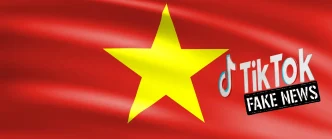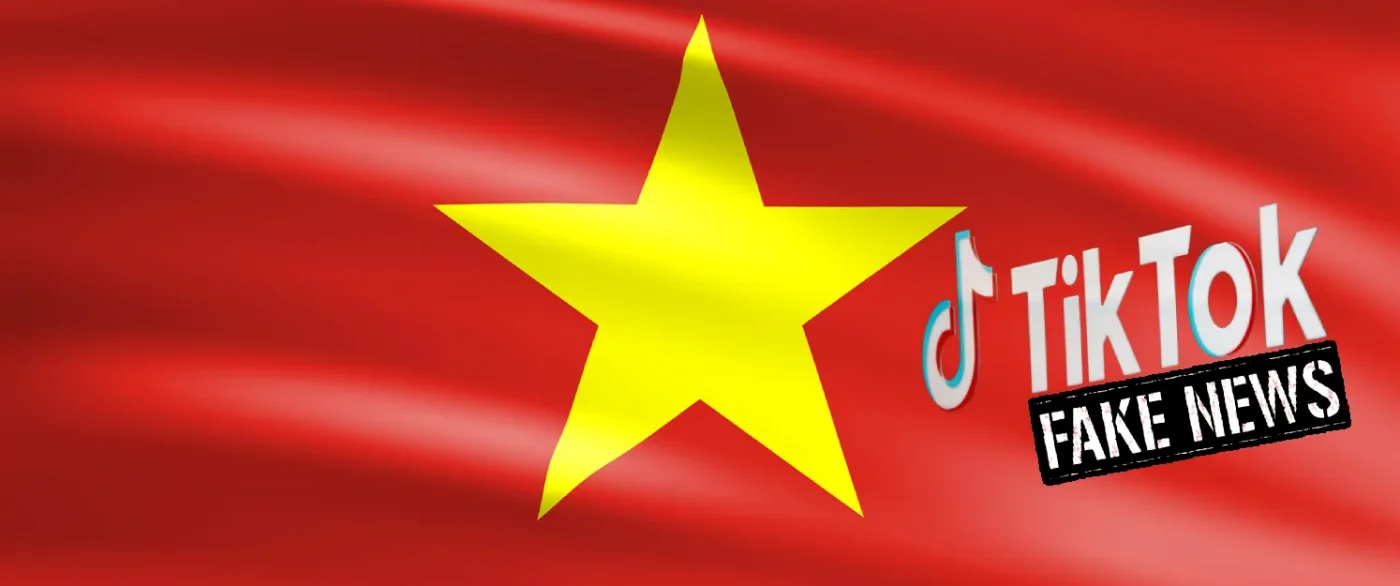In a crackdown on online misinformation, two TikTok content creators have been arrested in Ho Chi Minh City for allegedly spreading false claims about a recently retired senior police official. The arrests, which took place on Wednesday, June 11, 2025, have reignited debates over freedom of expression and the responsibilities of social media influencers in Vietnam, a country where political discourse remains tightly controlled.
Details of the Arrests
Tran Nhu Phuoc, 38, from Khanh Hoa Province, and Ngo Son Ha, 51, from Lam Dong Province, were detained by Ho Chi Minh City police for posting videos that authorities claim distorted facts about Lieutenant General Le Hong Nam, who retired on June 1, 2025. According to a police statement, the pair misused democratic freedoms to infringe upon the rights of the state and its citizens, an offense under Article 331 of Vietnam’s Penal Code. The videos, which featured sensational titles and images of prominent leaders, reportedly included fabricated narratives about personnel changes, government restructuring, and high-profile cases.
The content quickly gained traction on TikTok, amassing thousands of views and interactions. Police allege that the videos caused public anxiety and tarnished the reputation of both the former police chief and the broader police force. Following an investigation involving collaboration with provincial officials, the two men were apprehended and have since admitted to their roles in disseminating false information. Authorities have indicated that the investigation remains ongoing, with potential further charges or arrests possible as they delve deeper into the impact of the content.
Broader Context of Online Misinformation
This incident is not isolated. In a related case, the owner of the YouTube channel “Nguoi Dua Tin” (translated as The Herald or Messenger), which boasts two million followers, along with two associates, was recently arrested for spreading misinformation about political leaders. Facing charges linked to over 6,700 videos that misrepresented political actions, the group is accused of generating illicit earnings exceeding 10 billion Vietnamese Dong (US$385,000). These cases underscore a growing concern among Vietnamese authorities about the spread of false information online, particularly content targeting public figures or state institutions.
Police have issued a public warning, emphasizing that online attacks, insults, or misinformation targeting individuals or organizations are illegal and will face prosecution. “Citizens must adhere to the law, including in their online activities” said a police spokesperson. This stance reflects Vietnam’s broader efforts to regulate digital spaces under laws like the 2018 Law on Cybersecurity, which grants authorities significant powers to monitor and control online content deemed harmful to national security or public order.
Freedom of Expression Under Scrutiny
The arrests have sparked renewed discussions about the balance between curbing misinformation and protecting freedom of expression in Vietnam. While the country has seen gradual improvements in access to information and public discourse, particularly through social media platforms like TikTok and YouTube, political information remains a sensitive topic. The government, led by the Communist Party of Vietnam (CPV), maintains strict oversight over narratives that could undermine state authority or sow public unrest.
Critics argue that laws like Article 331 of the Penal Code, which addresses the misuse of democratic freedoms, can be interpreted broadly, potentially stifling legitimate dissent or criticism. International human rights organizations have long expressed concern over Vietnam’s approach to online speech, pointing to cases where content creators and activists have been detained for posts that challenge official narratives. If confirmed, the allegations against Tran Nhu Phuoc and Ngo Son Ha may highlight the risks faced by social media users who engage with politically charged topics, even if their intent is unclear or lacks malice—though no evidence suggests malicious intent in this specific case.
On the other hand, supporters of the government’s actions argue that unchecked misinformation can destabilize society, particularly when it targets respected figures like a retired police chief. The rapid spread of the TikTok videos, which reportedly caused public anxiety, illustrates the potential for digital content to influence perceptions in real time. For authorities, maintaining public trust in institutions like the police force is paramount, especially in a country where stability and order are often prioritized over individual freedoms.
The Role of Social Media in Vietnam
Social media has become a double-edged sword in Vietnam. Platforms like TikTok, with its short-form video format, have exploded in popularity, offering users a space to share everything from entertainment to commentary on current events. For many young Vietnamese, these platforms represent a rare outlet for self-expression in a society where traditional media is heavily state-controlled. However, the same accessibility that makes TikTok appealing also amplifies the risk of misinformation, as unverified claims can spread virally before corrections or official responses are issued.
The government has responded by tightening regulations on digital content. Under the 2018 Law on Cybersecurity, tech companies are required to store user data locally and remove content deemed offensive within 24 hours of a government request. Additionally, content creators can face severe penalties for violating laws related to national security or public morality. The arrests of Tran Nhu Phuoc, Ngo Son Ha, and the “Nguoi Dua Tin” team signal a broader crackdown on influencers who stray into politically sensitive territory, raising questions about how far authorities will go to police online spaces.
Public Reaction and Regional Implications
Public sentiment on the arrests appears divided. On platforms like X, some users have expressed support for the police action, citing the need to protect public figures from baseless attacks. Others, however, view the detentions as an overreach, arguing that the government is using misinformation as a pretext to silence voices outside the official narrative. While X posts provide a glimpse into public opinion, they cannot be taken as representative of the broader population, given Vietnam’s restricted internet environment and the platform’s limited reach compared to TikTok or Facebook.
Regionally, Vietnam’s approach to online content aligns with trends across Southeast Asia, where governments are increasingly grappling with the challenges of digital misinformation. In Thailand, for instance, the Computer Crime Act has been used to target online critics, while Indonesia has faced criticism for laws that curb free speech under the guise of protecting national unity. Vietnam’s latest arrests may serve as a case study for how states balance the benefits of digital connectivity with the perceived threats of unchecked information flows.
Legal and Ethical Considerations
From a legal perspective, the charges under Article 331 carry significant penalties, including potential prison sentences. The ongoing investigation into Tran Nhu Phuoc and Ngo Son Ha will likely focus on the intent behind their videos and the tangible harm caused by their content. If evidence emerges that their actions were driven by malice or financial gain, as in the “Nguoi Dua Tin” case, harsher penalties may follow. However, without such evidence, questions remain about whether the response is proportionate to the offense.
Ethically, the case highlights the responsibilities of content creators in the digital age. While social media offers unprecedented reach, it also demands a level of accountability that many influencers may not fully grasp. In Vietnam, where political narratives are closely guarded, the line between acceptable commentary and illegal misinformation can be perilously thin. For Tran and Ngo, their arrest may serve as a stark reminder of the risks inherent in navigating this space.
Looking Ahead
As Vietnam continues to modernize its digital infrastructure, the tension between state control and individual expression is likely to intensify. The arrests of Tran Nhu Phuoc and Ngo Son Ha are a clear signal that authorities are prepared to act decisively against perceived threats in the online realm. Yet, with each high-profile case, questions persist about how the country can foster a digital environment that encourages open dialogue while addressing the very real challenges of misinformation.
For now, the public watches as the investigation unfolds, with many wondering whether these arrests will deter other content creators or inspire new ways to push boundaries. In a nation where the past and present are often debated in hushed tones, the future of online speech remains an open and pressing question.
















